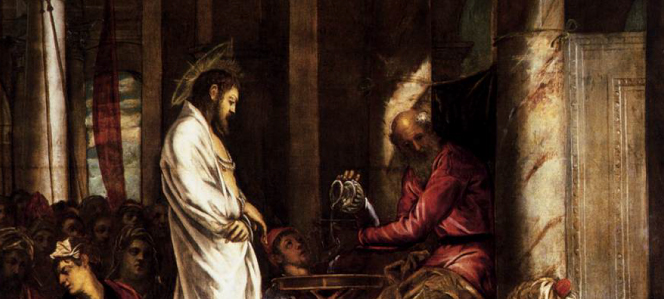In the first decade of the twentieth century, the French Dominican Humbert Clerissac delivered a series of conferences to friars of the English Province. In a conference on truth, Clerissac mentions being troubled by a trend he saw in which people fled from claims of truth. He says, “Veritas is not always a recommendation to the world of today. We [meaning Catholics] are reproached for pretending to an intellectual monopoly and dreaming of a scientific theocracy. It is no longer only the rule of Faith which is difficult to bear, but also the true rule of knowledge. Many, especially among the young, turn from us through diffidence and fear.” In America today as in Europe then, many, especially many of the young, do back away from any claims about truth.
And it’s understandable. Ideological extremisms abound. Across the world, we observe millions of smart people disagreeing about the most fundamental things, often bitterly, sometimes to the point of bloodshed. This seems to leave us with two possible options: either the truth is very hard to come by, or it doesn’t exist at all. Distancing ourselves from strong claims about the truth seems to be a path of peace. Either we can espouse skepticism and start asking, “Who are these people to think they know the truth?” Or, we embrace a sort of relativism. We hear this all the time: “You can think that and that’s great for you, but that’s not for everyone so don’t impose it on me.”
But there’s a third option. As Aristotle put it: “truth seems to be like the proverbial door, which no one can fail to hit.” We can acknowledge that nearly everyone has parts of the truth, parts of the story, but few of us know how the pieces fit together. So we shouldn’t dismiss truth but should continue the inquiry. “What orders the whole?” we need to ask. Or, “Who orders it?”
Those enamored by the belief that relativism or skepticism will lead to world peace need to remember Pontius Pilate. As recounted in John’s Gospel, Pilate challenges Christ with the question, “What is truth?” (Jn 18:38). Jesus had said to him, “For this I came into the world, to testify to the truth. Everyone who belongs to the truth listens to my voice.” Pilate turns to address the crowd before Jesus answers him, and it is not clear whether he even wants to hear an answer. Perhaps Pilate still desires to know the truth; perhaps he wants to understand the reason for this trial and Jesus’s claims. But his wish to know seems to be deflating.
We can understand his exasperation. He is growing tired of trying to work out what had happened: what Jesus had done; why the leaders of the Jews were accusing this man; whether he had violated the law; why those gathered were so set on Jesus’s crucifixion. Pilate seems to give up on the possibility of discovering the true story. In Mel Gibson’s version of the scene, Pilate asks his question cynically. He seems to question the existence of truth itself.
But by despairing of the truth, he commits the ultimate cruelty and permits the death of the innocent one, Truth Himself. Little did he know that the answer to his question stood before him. The pursuit of peace, when divorced from truth, ends in chains, whips, and jeering mob rule.
The rule of knowledge, like the rule of faith, initially appears daunting, perhaps too grand to be true. But under its rule, which involves a humble submission of the mind to study, we discover that the way is sweet. Christ is the way and the truth, and he sustains and consoles us as we strive to know and love him who is, in the words of St. Catherine of Siena, the “sweet first Truth.”
